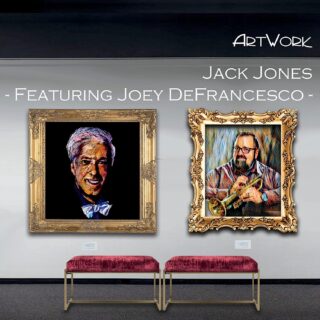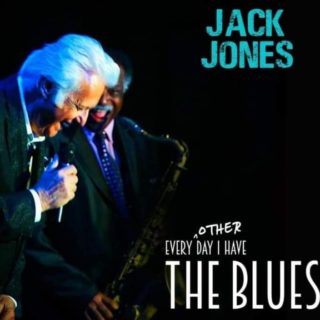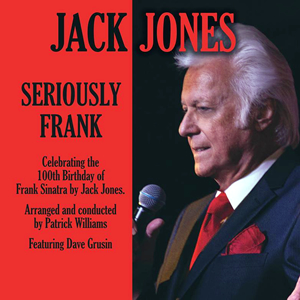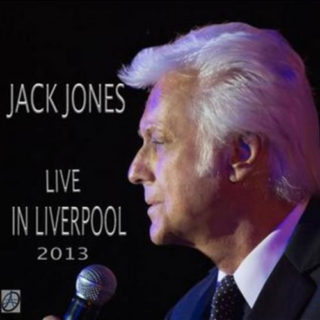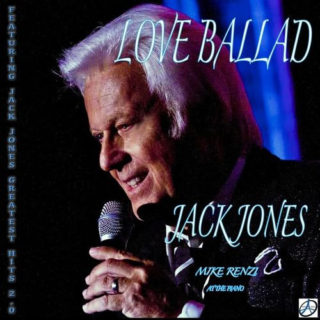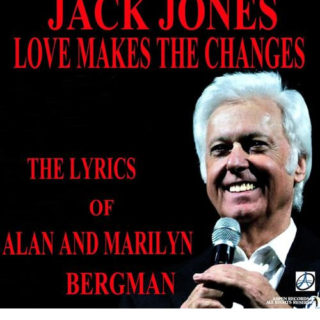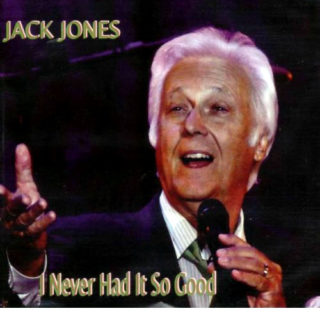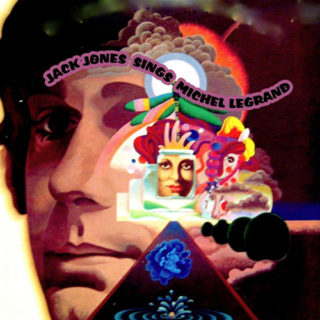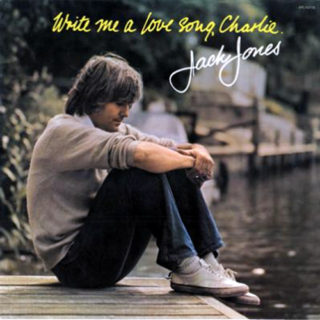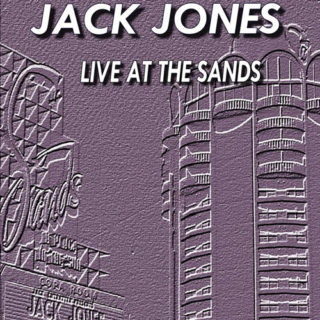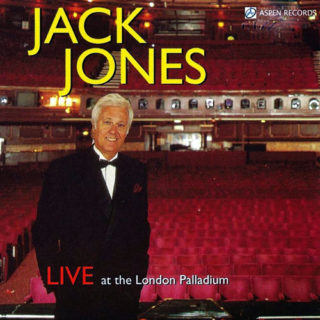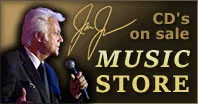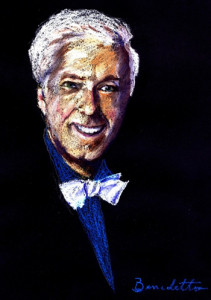
The nominations for the 64th GRAMMY Awards included a record-breaking slew of nods for an industry legend. But for 95-year-old Tony Bennett, the accolades are just the latest superlative in a historic career that has had a sparkling evolution from ’50s-era crooner to bonafide icon.
Bennett scored six nominations alongside duet partner Lady Gaga for their Cole Porter tribute album Love For Sale, making history as the oldest artist to be nominated for Record Of The Year and Album Of The Year. The legend also received nominations for Best Traditional Pop Vocal Album, Best Engineered Album (Non-Classical), Best Music Video and Best Pop Duo/Group Performance.
The 18-time GRAMMY winner long ago staked a claim in the annals of music history, whether releasing instant classics such as 1951’s “Because of You” or his career signature “I Left My Heart in San Francisco,” or creating swinging hits like “Rags to Riches.” Decades into his career, Bennet maintains an unparalleled reputation as one of the Greatest American Songbook’s biggest champions and interpreters.
“Mr. Tony Bennett is truly the greatest singer to ever do it. I have learned so much from his records as a young musician and then later joining him on stage and in the studio over the years,” says Brian Newman, the GRAMMY-winning bandleader, arranger and trumpeter for Cheek to Cheek and Love for Sale. “His reverence for the Great American Songbook is why I love this music so much. Pulling at your heartstrings, with every lyric and phrase.”
Bennett’s unmatched style and powerhouse voice (even “The Voice” himself, Frank Sinatra, famously referred to Bennett as his favorite artist) puts him in rarified air, even amongst the industry’s biggest names. Ahead of the 2022 GRAMMYs, the Recording Academy honors the seminal figure with a roundtable tribute, featuring Bennett’s contemporaries, collaborators, friends and mentees.
This interview has been lightly edited for clarity.
Johnny Mathis (GRAMMY-nominated singer): Tony is an icon.
Chris Botti (GRAMMY-winning trumpeter): Tony Bennett is one of our greatest American treasures.
Michael Bublé (GRAMMY-winning singer): He’s one of the greatest vocalists, storytellers and interpreters of all time.
Nancy Sinatra (GRAMMY-nominated singer): Tony is not just an American treasure but an international treasure, loved by the entire world.
Gregg Field (GRAMMY-winning producer, arranger): Tony is among only a handful of singers I’ve worked with who have a natural ability to be completely undistracted while they are telling stories through song.
Wayne Newton (Chart-topping singer): As a performer, Tony Bennett is exquisite. There’s nothing he does on stage that is forced. It always comes from his heart.
Clive Davis (GRAMMY-winning executive): Tony Bennett’s voice is truly perfection. Whether it’s a pop song, jazz or blues, when Tony sings it it’s forever definitive.
Jack Jones (GRAMMY-winning singer and actor): He’s been a singing star as long as I can remember, but I became aware of him in high school when I had my first kiss at a dance. His record “Stranger in Paradise” was always on the radio at the time. He sounded like what romance meant to me, singing these beautiful songs, and I got to thinking that his voice was always the most identifiable from the very beginning of his career. People like me and Steve Lawrence had to get warmed in before you could tell who it was, but you always knew it was Tony.
Gregg Field: I’ve been a fan of Tony from back when I would go to see him at the Fairmont Hotel in San Francisco as a teenager. I worked with him for the first time when I was a young member of Count Basie’s band. Tony loved Basie and we would do concerts together two or three times a year. Tony very much lived in his own world. I remember one time Tony and I were in a car heading to a hotel and he mentioned that like Duke Ellington, he had never driven a car because he was always too distracted by the music in his head.
Brian Newman: He really makes you feel every moment of that song and you know that he means every word he is singing. He has an uncanny ability to take words that were written by some of the greatest songwriters of all time and uniquely make them his own.
Wayne Newton: He was constantly around Frank Sinatra when the Rat Pack was in Vegas, so he’s always been a part of the Vegas genre, if you will. [They are] the superstars that really left an image on this town that has sustained for a long time.
Johnny Mathis: Tony takes me back to a different period which I remember very fondly. We have a great deal in common because we both came up in the music industry at a similar time and were both Columbia Records artists. We were also particularly fortunate to sing wonderful songs written by some of the best songwriters of the era, and work with many of the finest musicians and producers in the world.
Michael Bublé: I learned a lot working with him. Having my hero take me under his wing was one of the greatest moments of my life and my career. It meant a lot to me and it brought gravitas to everything I did.
Brian Newman: His humility and his longevity is a testament to how he treats others around him. It is always a supreme honor to be in his presence and he is someone I will always study and look up to.
Chris Botti: I’ve had the great pleasure of working with him many times and consider him to be not only an icon, but one of the most generous performers I’ve ever worked with.
Michael Bublé: He was even generous in what he would tell me when we’d be together. I said to him, “I’m learning as much as I can from you.” And he laughed and said, “If you steal from one, you’re a thief. But when you steal from everyone, you can call it research.” It’s a quote that I actually use a lot whenever any young person comes up to me and asks for advice. That’s exactly what I tell them: Take it all in and borrow from everyone. We’re all a culmination of our heroes.
Gregg Field: With Tony, it’s always very personal and you feel like you are being given a window into who he is. Sinatra, Ella, Luther Vandross and, of course, Tony, were masters at that. Sinatra once said: “I only need one mic and one light.” What does that say about the depth of their artistry? A Picasso is a Picasso, and the frame is irrelevant. Tony can transport his audience and you feel like it’s just you and him.
Michael Bublé: My favorite Tony song is “I Wanna Be Around;” I think it’s one of his greatest vocal performances. I love Ralph Sharon on piano on the track; he’s one of the greatest accompanists of all time. From its sentiment, to how hard it swings and the way he and his band fit together like a glove, it’s perfection. It’s a song that became the soundtrack of my life. It’s just the most wonderful song with great lyrical content about love and also about revenge. I thought it was just so cool.
Jack Jones: For the second-ever GRAMMYs, I sang the five nominated songs when one of them was mine, “Wives and Lovers.” And so I got to Tony’s song “I Wanna Be Around” and said, “Hey Tony, you gotta help me!” He jumped up and finished the song with me. It was a great moment.
Gregg Field: His recordings with Basie, Ellington and particularly Bill Evans are certainly iconic albums in the jazz world. But Tony is the ultimate interpreter of a great lyric, especially when he sings a ballad. His original ballad recording of Stevie Wonder’s “For Once in My Life” is the very definition of great vocal interpretation. It’s slow and Tony waits. When he finally says the first line, it’s not “crooned,” it’s stated. Tony creates a narrative and an anticipation for the next line, and it always becomes deeply personal.
Johnny Mathis: My favorite Tony song is “Because Of You.” While it was before “I Left My Heart In San Francisco,” it is just the song that I personally most associate with Tony. His interpretation is so honest and it was very representative of the time. Also, I believe it was produced at my favorite CBS 30th street studio in New York by my lifelong friend, Percy Faith.
Gregg Field: Tony is also a great visual artist and was always drawing on napkins or whatever was nearby. I cherish those drawings.
Nancy Sinatra: His records and the paintings he created over the years will live on forever. I am the proud caretaker of a lovely gouache Tony made for me — plus every album he has ever made. My favorite is his The Movie Song Album. Every track is a classic.
Brian Newman: Tony’s such a prolific recording artist and has performed most every song in the Great American Songbook. It’s so hard to pick a favorite but here are my top three right now: “Once Upon a Summertime” from his 1963 record I Wanna Be Around… , “Some Other Time” from the duo records he did with famed pianist Bill Evans — this is one of my favorite records of all time; truly a masterpiece. “On a Clear Day You Can See Forever” off the 1970 album Something — he holds a gorgeous high note at the end that is at least 20 seconds long. Wow!
Jack Jones: One night we were staying at the same hotel and the two of us went down to the bar to have a drink. At a certain point, he pulled out his pencil and pad and he started sketching on a napkin a drawing of the guy who was sitting at the end of the bar. So we finished and I saw him crumble it up in his hand and he was about to throw it away, and I said, “Oh no, you don’t!” And he said, “You want this?” I said, “Sure I do.” To this day, it’s sitting on my coffee table.
Brian Newman: There are so many great stories of working with Tony. They are moments that I will cherish and honor forever. I remember when we were in Brussels for the release concert for Cheek to Cheek, and he was hanging with all of us at this tiny bar until the wee hours of the morning. I’ll never forget the great stories and knowledge that he shared with us that night.
Clive Davis: Over the years, I’ve loved often showcasing Tony at my pre-GRAMMY gala. I would watch all the young artists and musicians in the room transfixed by him.
Nancy Sinatra: Tony named a school in Astoria for Frank and when his family suggested he changed the name to the Tony Bennett School, Tony wouldn’t do it. The school was named for his friend. Period.
Wayne Newton: My favorite Tony story happened at the Coconut Grove in Los Angeles. The guy that booked there got into a big scene with Tony for some reason and fired him. And Tony’s next record out was “I Left My Heart in San Francisco,” which of course was the biggest hit in the world. Well now, the place wanted him back.
So the guy called him and said, “I’ll pay you whatever you’re now receiving and we’ll make sure to get anything else you need.” And Tony said, “Yeah, I need a black glass stage.” And the guy said, “What? Well, if you can come on this date we’ll have a black glass stage for you.” And he hung up the phone and Tony was asked, “What in the world do you need with a black glass stage?” And Tony said, “I don’t need it at all, it was the only thing I could think of.” That’s Tony Bennett, and it’s those kinds of stories that tell you more about individuals than their art.
Brian Newman: Another good Tony story was in Belgium. Our sax man Steve Kortyka, who I’ve been playing with for over 20 years, came by my room to rehearse some of our horn parts. Since we’ve known each other so long, he gave a few really loud banging knocks on my door just to mess with me. Turns out he was across the hall banging on Tony’s hotel room door! I heard the commotion and when I opened my door there was Steve directly across the hall from me, facing Tony and his open door. There were the three of us, not sure what to do! Steve apologized profusely and we all had a good laugh about it. Later that night he came down to the bar and we all had some champagne together at the bar with the band.
Nancy Sinatra: On a personal level, I remember how nervous I was performing “This Girl’s in Love With You” on “The Ed Sullivan Show.” Tony was in the audience smiling and cheering me on. Later on, when my father was dying, Tony was the only celebrity friend who came to visit. One evening at dinner, there we sat — the three of us, Dad in pajamas, dining quietly, not much conversation, the two legends and me. Tony respected my dad so much that he didn’t impose a lot of talking. He simply followed Dad’s lead. It was a sweet, lovely night.
Jack Jones: At Sinatra’s funeral, I remember we met up afterwards and he said, “What are you doing?” I said, “Oddly enough, I’m working on an album dedicated to you” and he offered to do the cover. So the plan was that he’d go to England and when he’d get back, he’d send me the cover. He went away, called me from the Dorchester Hotel and said, “What color are your eyes?” And I said, “Hazel” and he said, “Thank you,” and hung up.
So I’m waiting for it to arrive and it never did, so I had to get someone else to do the cover for me. He didn’t realize it didn’t arrive and thought I was shying away from it. We wound up meeting each other at the GRAMMYs right after. I was able to tell him, “Hey, we never got the picture so we had to get someone else.” But apparently, someone accidentally put it in a closet in his office and they forgot to send it out. But we called it Jack Jones Paints a Tribute to Tony Bennett and it became one of my favorite albums of my career.
Nancy Sinatra: Tony is an American treasure who has served his country for decades. First as a soldier on the front lines in WWII, and then as an entertainer singing for the troops. His life was shaped by the terrible things he saw in the war and, as a result, Tony is perhaps the most peaceful and peace-loving man I know. I love Tony, and I treasure his friendship. Above all else, he is a precious friend.
Johnny Mathis: Tony is one of the last of his genre and he stands alone because of his unique talent, work ethic and his dignified demeanor. He was not afraid to stretch musically yet still remained true to himself.
Gregg Field: A couple of years ago I was asked to music-direct Tony’s “Library of Congress-Gershwin Prize” PBS special, which I was very proud to have received an Emmy for. My association with Tony has lasted over 40 years; our last gig together was in 2019 at the Statue of Liberty along with Gloria Estefan. I was noticing the signs of his Alzheimer’s coming on then. I can only imagine the courage and passion it took for Tony to walk onto the stage at Radio City last year for the last time with Lady Gaga. After all the concerts over seven decades, performing in every corner of the world, it was at once incredibly moving knowing that we will not be able to experience Tony’s magic again after that night, but bittersweet that this was the perfect finale.
Jack Jones: He’s able to sing up in that high register to this day. I thought the show he did in New York with Lady Gaga was wonderful. Knowing what they were going through and the fact he sang everything just beautifully. It was a more than wonderful thing for her to do that. It was very special, and very unique.
Gregg Field: Overall, his absolute unrelenting commitment to excellence is at the forefront. In spite of decades of passing musical trends, Tony recognized greatness, and it is always that the next generation of artists that are attracted to his music.
Johnny Mathis: He raised the level of popular music of the day while always remaining a gentleman. He’s someone to look up to and even more importantly, he’s able to bring together different generations through his music. What he contributed over his long and successful career will last, which is the ultimate goal of nearly every artist.
Clive Davis: He’s an all-time best. An all-time real deal.
Brian Newman: He really is the coolest cat on the planet.



